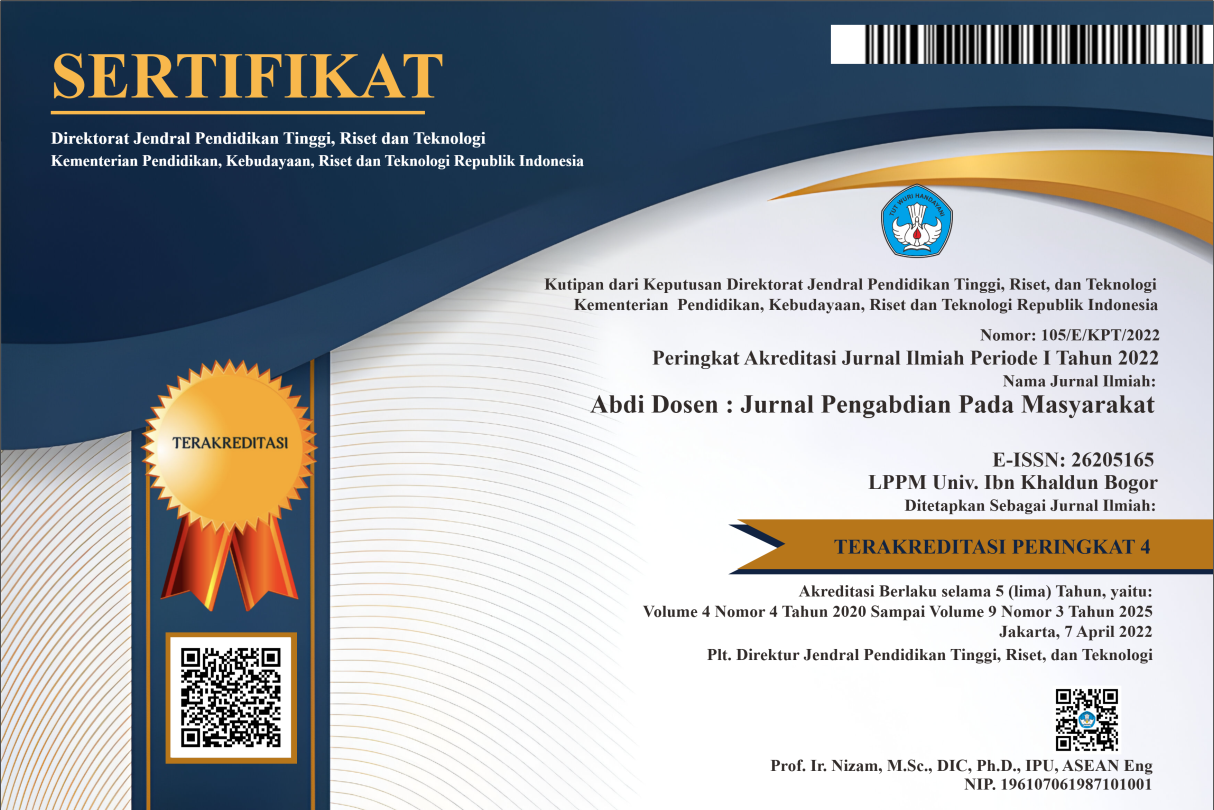THE ANALYSIS OF THE IMPACT OF DIGITALIZATION ON INTERNATIONAL TRADE IN ENHANCING ECONOMIC GROWTH IN INDONESIA
Abstrak
This study examines the impact of digitalization on international trade and its role in boosting Indonesia’s economic growth using the Vector Autoregression (VAR) model. The variables analyzed are exports, imports, exchange rates, internet penetration (as a digitalization indicator), and GDP (as an economic growth indicator), with annual data from 2007–2024 sourced from the World Bank. Stationarity tests show all variables become stationary at first or second differences, while the Johansen cointegration test confirms four long-term relationships among them. The impulse response function (IRF) indicates GDP reacts variably to shocks in internet penetration, exchange rates, exports, and imports. Variance decomposition (FEVD) reveals that in the short term, variables are largely influenced by themselves, but in the medium and long term, internet penetration increasingly contributes to trade variables and GDP. These results highlight digitalization’s substantial role in enhancing trade performance and economic growth, emphasizing the need to strengthen digital infrastructure and integrate IT into the national trade system for inclusive, sustainable development.
##submission.copyrightStatement##
##submission.license.cc.by-nc4.footer##





















